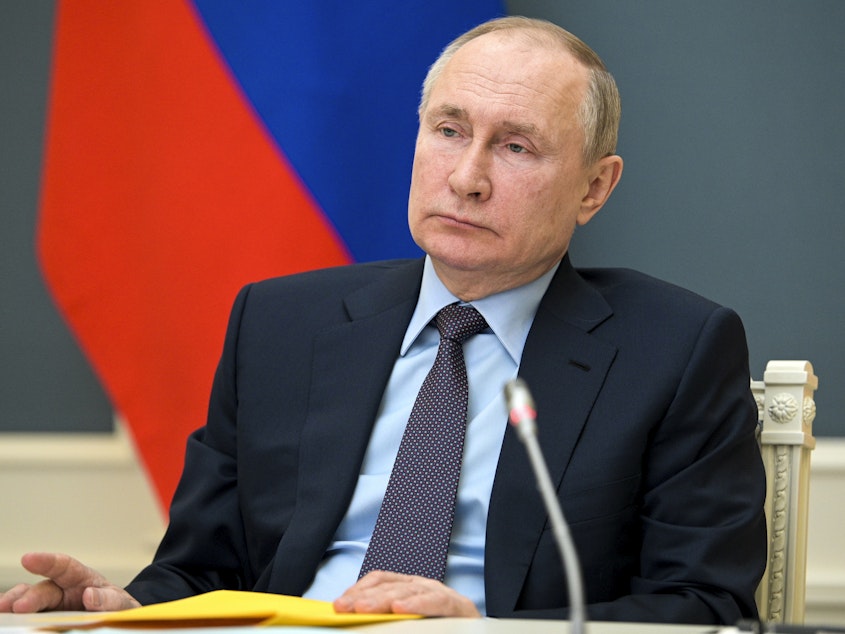U.S. Slaps New Sanctions On Russia Over Cyber Attack, Election Meddling

President Biden is ordering a new round of economic sanctions on Russia — a response in part to Moscow's election meddling and a Kremlin-linked computer breach that penetrated numerous U.S. government networks.
Updated April 15, 2021 at 9:29 AM ET
The sanctions are also meant to impose a penalty over Russia's continued occupation of Crimea, which it infiltrated and annexed from Ukraine seven years ago, and for reportedly offering bounties for attacks against U.S. and coalition military personnel in Afghanistan.
The Kremlin has denied any involvement in U.S. elections or on offering the bounties. Moscow has also said that it has nothing to do with the SolarWinds computer attack.
Kremlin spokesman Dmitry Peskov said Russia would respond later after seeing the details, but indicated that Moscow could retaliate.
"We condemn any intentions to impose sanctions, consider them illegal, and in any case the principle of reciprocity operates in this area," he said, according to Reuters.
A fact sheet released by the White House on Thursday morning said, "The Biden administration has been clear that the United States desires a relationship with Russia that is stable and predictable."
"We do not think that we need to continue on a negative trajectory," it said. "However, we have also been clear — publicly and privately —that we will defend our national interests and impose costs for Russian Government actions that seek to harm us."
White House National Security Advisor Jake Sullivan, speaking with CNN on Thursday, said that Biden is imposing the sanctions on Russia over the recent SolarWinds hack and election interference.
He said the White House believes the sanctions "are proportionate measures to defend American interests in response to harmful Russia actions including cyber intrusions and election interference."
According to the White House, the latest sanctions target more than 30 Russian entities and individuals it says are involved in election meddling. The U.S. is expelling 10 personnel from the Russian diplomatic mission to be expelled from the country. The sanctions also target six Russian tech firms believed to provide support to Russian intelligence.
The sanctions also include a prohibition on U.S. financial institutions participating in the trade of bonds used by the Russian government after June 14, 2021. They leave open the possibility "to expand sovereign debt sanctions on Russia as appropriate."
On CNN, Sullivan said that in a telephone call with Russian President Vladimir Putin earlier this week, Biden made clear that "his goal is provide a significant and credible response, but not to escalate the situation."
He reiterated Biden's intention to meet directly with Putin at an upcoming summit.
"We believe that altogether, both the actions we are taking today and that broader diplomacy, can produce a better set of outcomes for U.S.-Russia relations," Sullivan said.
While the latest sanctions are meant as a response to Russia's meddling in the 2020 presidential election, they follow on from Obama-era sanctions that called out the Kremlin for similar interference in the 2016 presidential race.
Former President Donald Trump repeatedly downplayed or denied any Russian involvement in the 2016 elections, repeatedly calling the charge a "witch hunt" and a "hoax."
A new U.S. intelligence report released last month confirmed that Russian sought once again to aid Trump in last year's election. [Copyright 2021 NPR]



